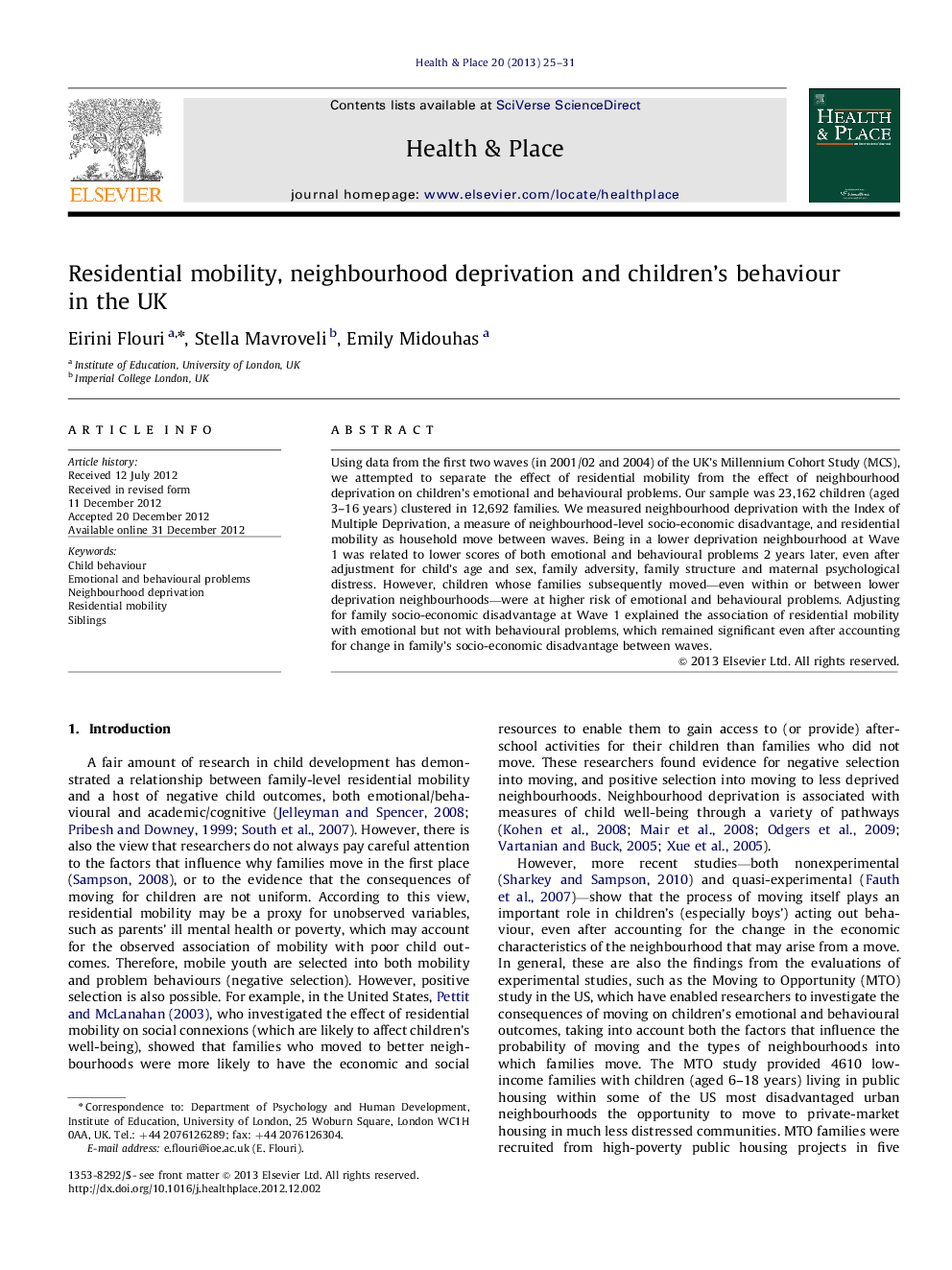| Article ID | Journal | Published Year | Pages | File Type |
|---|---|---|---|---|
| 7459195 | Health & Place | 2013 | 7 Pages |
Abstract
Using data from the first two waves (in 2001/02 and 2004) of the UK's Millennium Cohort Study (MCS), we attempted to separate the effect of residential mobility from the effect of neighbourhood deprivation on children's emotional and behavioural problems. Our sample was 23,162 children (aged 3-16 years) clustered in 12,692 families. We measured neighbourhood deprivation with the Index of Multiple Deprivation, a measure of neighbourhood-level socio-economic disadvantage, and residential mobility as household move between waves. Being in a lower deprivation neighbourhood at Wave 1 was related to lower scores of both emotional and behavioural problems 2 years later, even after adjustment for child's age and sex, family adversity, family structure and maternal psychological distress. However, children whose families subsequently moved-even within or between lower deprivation neighbourhoods-were at higher risk of emotional and behavioural problems. Adjusting for family socio-economic disadvantage at Wave 1 explained the association of residential mobility with emotional but not with behavioural problems, which remained significant even after accounting for change in family's socio-economic disadvantage between waves.
Keywords
Related Topics
Health Sciences
Medicine and Dentistry
Public Health and Health Policy
Authors
Eirini Flouri, Stella Mavroveli, Emily Midouhas,
